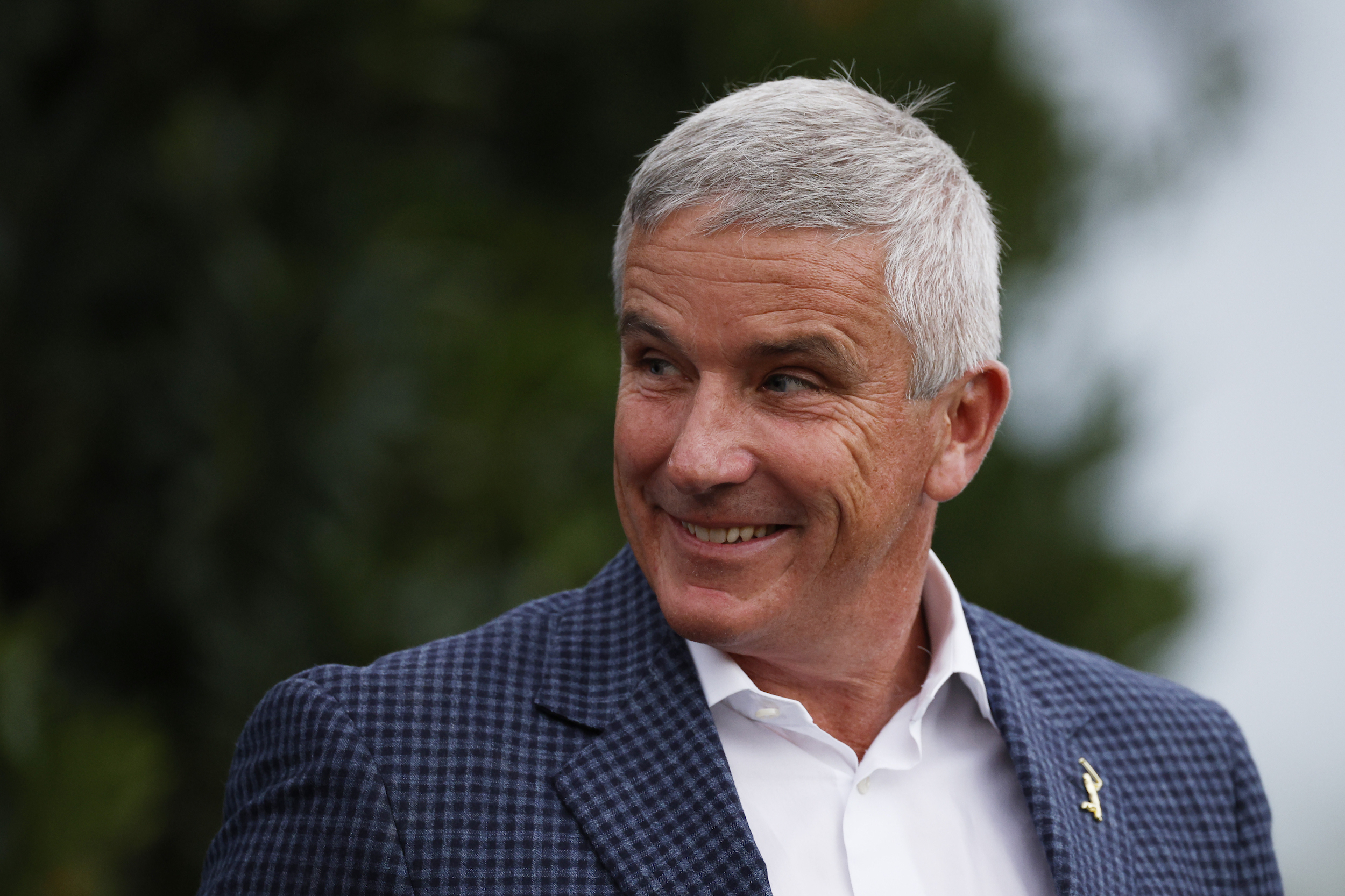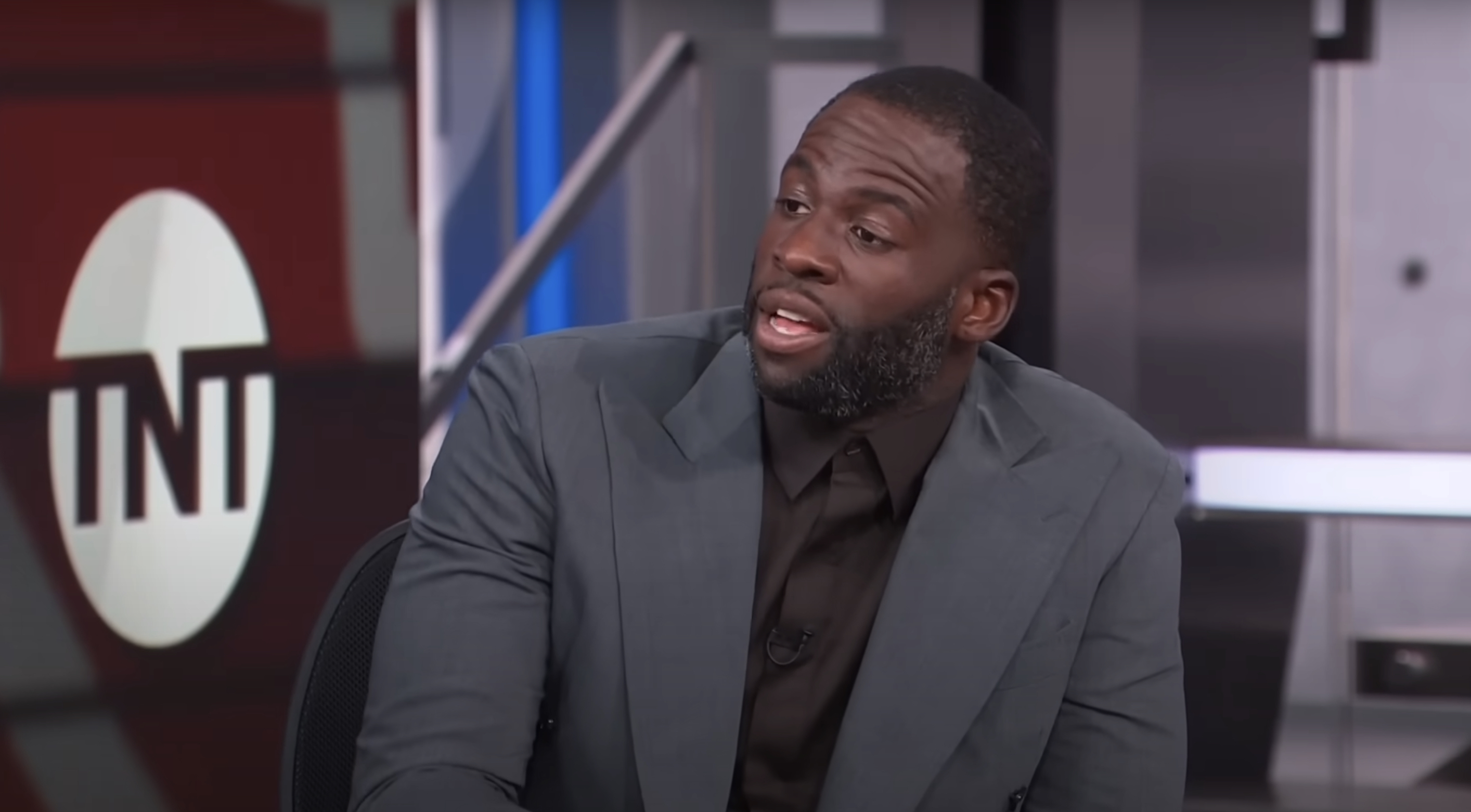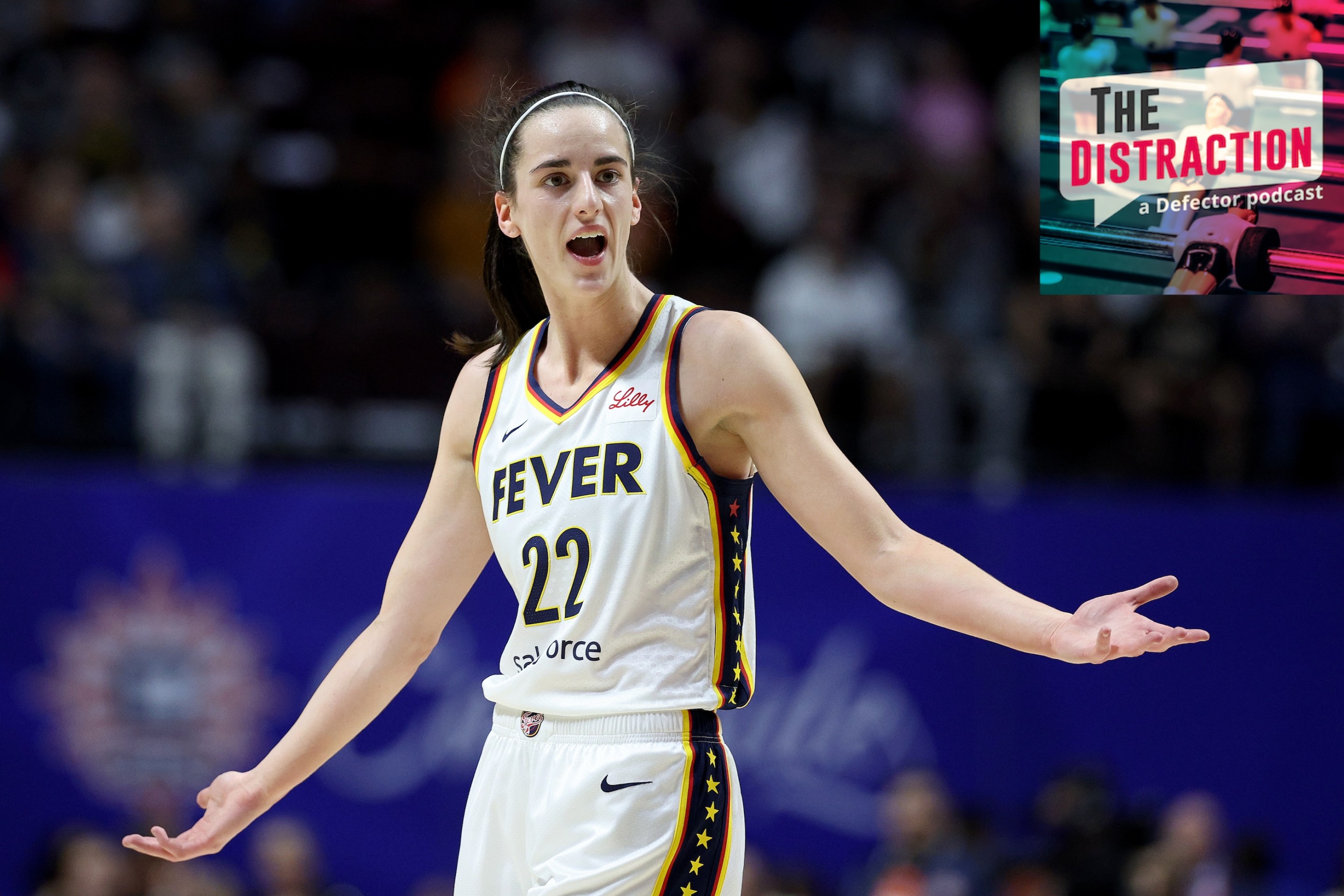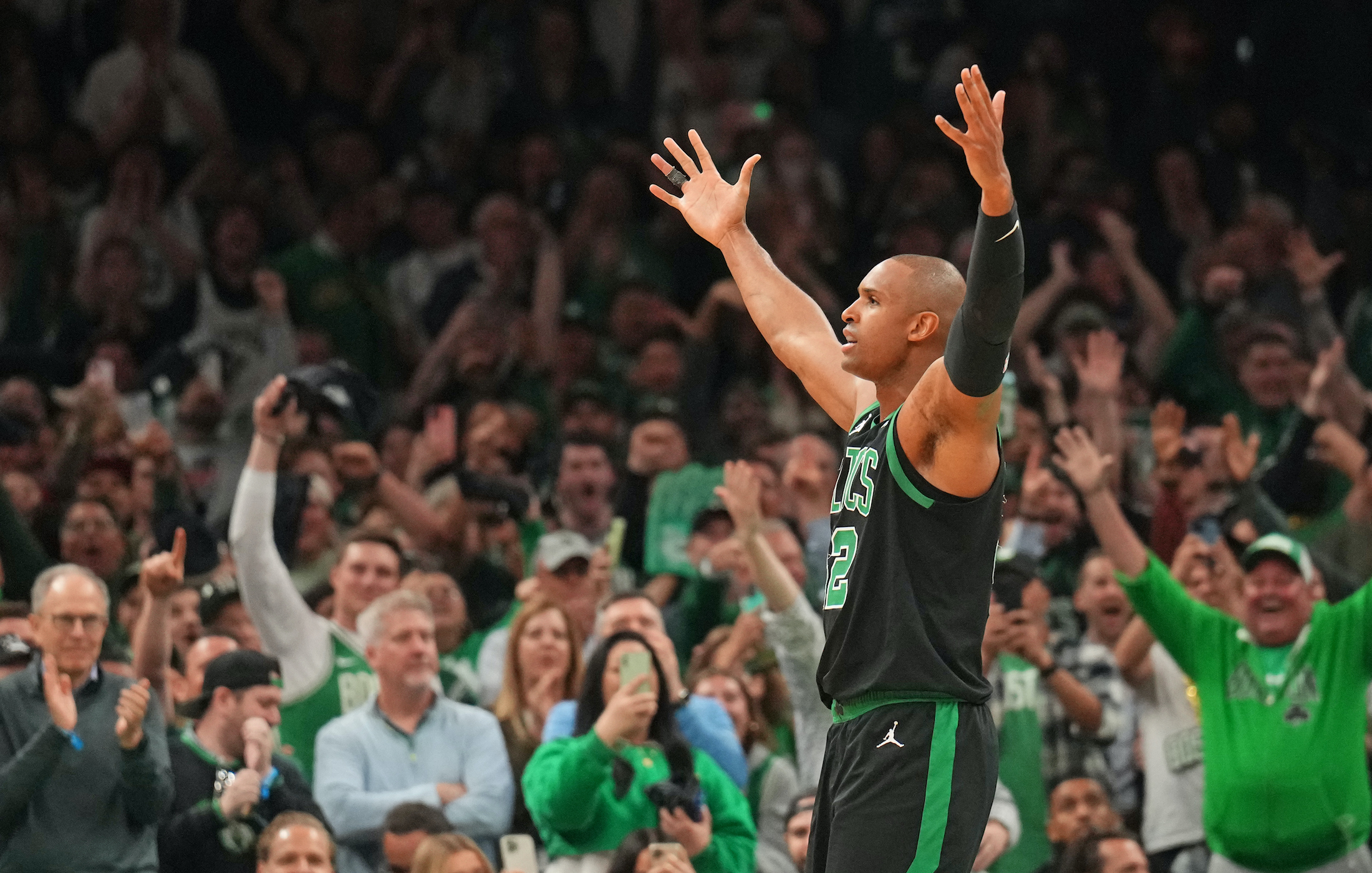Phil Mickelson may have had a point. Mountains of money are obviously what lured Mickelson and others to jump ship over the past 18 months from the PGA Tour to a controversial breakaway league, but when he made his pioneering move to LIV Golf in early 2022, he did not rave about how many more reckless parlays he could wager with his Saudi cash. He raved instead about the useful pressure that a competing golf promotion, funded by the "scary motherfuckers" of the Saudi Public Investment Fund, would put on the PGA Tour to finally change its ways.
"The Tour likes to pretend it's a democracy," Mickelson told author Alan Shipnuck, in the least inflammatory of his comments on the matter. "But it's really a dictatorship." To Mickelson, the ends that would justify and ennoble his mercenary means would manifest from "a once-in-a-lifetime opportunity to reshape how the PGA Tour operates," by forcing the Tour to work with players on a shared vision for the direction of the promotion. Also, Mickelson would in one fell swoop become much richer.
The PGA Tour spent the early days of this sudden incursion on a smarm spree, eagerly deflecting scrutiny toward LIV's blood-soaked Saudi backers and contrasting the PIF's lavish enticements with the Tour's own meritocratic competitive framework. In what is destined to go down as the signature 90 seconds of his career, PGA Tour commissioner Jay Monahan went as far as to suggest that golf professionals who draw paychecks from the PIF owe apologies to families of 9/11 victims:
"Have you ever had to apologize for being a member of the PGA Tour?”
— TSN (@TSN_Sports) June 12, 2022
PGA Tour Commissioner Jay Monahan comments on players joining LIV Golf. pic.twitter.com/MeHAbR1qQL
Tour operations are opaque enough that no real foundation or lexicon exists for interrogating either side of Mickelson's criticisms of the Tour's business. This is either a soaring triumph of management or a failure of adversarial press, or both, but behind-the-scenes PGA Tour coverage hasn't reached the same depth as insider reporting on North America's other major pro leagues. For better or worse, semi-serious NBA fans are only too happy to tell you about trade restrictions under the league's collective bargaining agreement. Labor matters, like service-time manipulation and salary arbitration, are standard parts of typical baseball discourse. Meanwhile the contours of the Tour's relationship with its members are pretty foggy to all but the most fanatical followers of the professional game. It was possible in February 2022 for a golf enjoyer, a dedicated viewer of golf's majors, to have been blindsided by Mickelson's sudden burn-it-down determination to dramatically reshape the Tour's labor landscape—to lack the context to condemn with confidence Mickelson's rhetoric as oafish misdirection.
Protected by this general incuriosity, the PGA Tour delayed for as long as possible before taking any of this seriously. But an increasingly complicated and acrimonious antitrust lawsuit and then a series of defections through the summer of 2022 finally forced a reckoning. In August, shortly after rising star Cameron Smith bolted for LIV Golf, the PGA Tour sat at a table with a coalition of players and acquiesced on a set of format changes designed to improve its footing in a suddenly contested landscape. If this historic restructuring—which offered more money and new opportunities to players—was a proud show of the Tour's democratic capabilities, it was spurred by precisely the pressure Mickelson was so pumped to apply. An unusual players-only meeting in mid-August, focused on dissatisfaction among top PGA Tour players about their earning potential, coalesced around a set of demands. Monahan talked this up later as a proud showcase of "the essence of what being a membership organization is all about," working with "the best interests of the collective in mind," but it was leverage, gained via the gravity of LIV Golf's spending power, that brought him to the table.
This brush with collectivism was short-lived, lasting just long enough for LIV Golf's players to jump up and steal the spotlight at the Masters in April, granting the breakaway league a huge and necessary boost in public profile. Monahan said he and two non-player members of the PGA Tour policy board met in secret soon thereafter with PIF governor Yasir Al-Rumayyan; over a period of weeks, says Monahan, he, Al-Rumayyan, and zero player representatives engaged in a series of secretive meetings to negotiate an agreement to bring the PIF's exorbitant spending to the PGA Tour. That's why Tuesday's announcement surprised even the most prominent and outspoken of the Tour's loyalists.
"It's hard for me to not sit up here and feel somewhat like a sacrificial lamb, and feel like I've put myself out there and this is what happens," a defeated-looking Rory McIlroy said Wednesday, acknowledging that he was kept in the dark as this merger came together. "I told Jay, 'You have galvanized everyone against something, and now they are our partners.'"
In an interview on Golf Channel, Jay Monahan stumbles though an attempt to defend his hypocrisy regarding the use of 9/11 families as a talking point against LIV Golf. pic.twitter.com/6blmZd8kDg
— Awful Announcing (@awfulannouncing) June 7, 2023
Monahan was called a "hypocrite" in a heated post-announcement meeting with players Tuesday, and more than one attendee reportedly sought a motion to have him removed as commissioner. You can understand why they're angry: Monahan staked out the PGA Tour's position that accepting money from the PIF was morally condemnable, and then worked behind the scenes to negotiate with the very entity he'd characterized as the existential enemy. But the immediate professional consequences for the PGA Tour's holdout players are worse: Wooed by loyalty and the high ground of glorious principles, some number of these guys turned down eight- and nine-figure paydays, only to wind up in the exact same professional boat as the ship-jumpers anyway.
McIlroy, who certainly could've commanded a Mickelson-esque mountain of Saudi cash with an early defection, will now have to accept as his only consolation that the LIV Golf entity, which in retrospect seems to have been launched entirely to force the PGA Tour to this exact capitulation, no longer has much reason to exist.
"I still hate LIV. Like, I hate LIV. I hope it goes away, and I would fully expect that it does," McIlroy said. "I think that's where the distinction here is. This is the PGA Tour, the DP World Tour and the PIF—very different from LIV."
Not so different at all, actually. One is maybe a little bit louder, with slightly more confusing leaderboards. Whatever happens to the LIV Golf promotion after this season, Mickelson and McIlroy now each get to have a cake and eat it too: Both can now say they were led to the PIF's resources by PGA Tour leadership's preference for acting unilaterally while posturing as a membership collective. Mickelson gets to keep the payday for leaving; McIlroy gets to maintain the high ground and prestige of having stuck to his principles. It's just that one of those cakes is a bit more appetizing.





